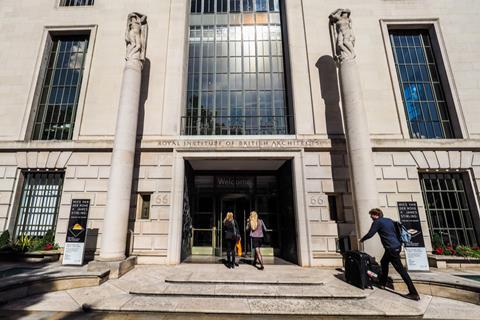Confidence soared in profession last month despite economic uncertainty, RIBA survey finds
Architects are expecting their workloads to increase for the first time in seven months, RIBA’s Future Trends survey has found.
The institute’s monthly temperature check of the profession found optimism soared last month despite ongoing uncertainty in the wider economy.
More than three quarters of practices which responded said they expect their workloads to increase or stay the same over the next three months, with just one quarter expecting them to decrease.

The survey’s index of workload expectations shot up by a “remarkable” 16 points to +5, RIBA said, which is the first time the figure has been in positive territory since July last year. Any number above zero indicates respondents on average expect their workloads to increase.
The rise was most marked in the South of England, where the index rose by 22 points to zero after seven months in negative territory. All other regions saw growing confidence, with the Midlands and East Anglia rising by 21 points, the North of England by 14 points and Wales and the West by 7 points. Only London, which fell below zero last month, remains pessimistic about future work with a score of -2.
RIBA head of economic research and analysis Adrian Malleson said: “The near-term prospects for architects look better than they have been for several months. Confidence is growing, with some practices reporting an increase in enquiries, more new commissions, and an uplift in clients deciding to move ahead with projects.”
One in 10 practices anticipated staff cuts over the next three months, with small firms outside of London and the South of England most likely to be looking at reducing their headcount.
Architects also reported more pessimism about the impact of the current EU trading arrangements on their work than when first asked in 2021, with 1 in 5 practices expecting a negative effect on their coming workload when asked in February.


























No comments yet